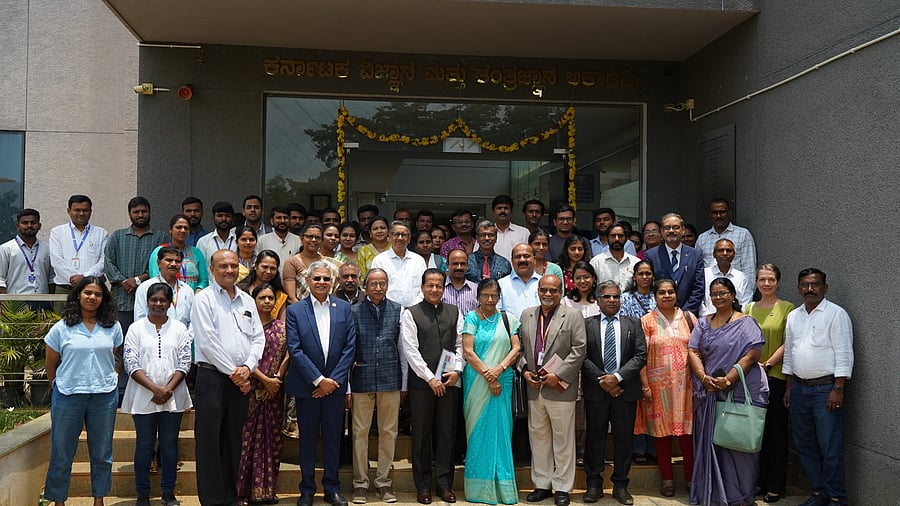
The Karnataka Science and Technology Academy (KSTA) is hosting a three-day national conference 'Antimicrobial Resistance: Strategies for Prevention and Alternatives'.
Credit: X/@kstacademy
Bengaluru: Political will and inter-organisational, inter-departmental collaboration is key to prevent an antimicrobial resistance (AMR) crisis in the country, experts who gathered at a national conference on AMR observed on Wednesday.
The Karnataka Science and Technology Academy (KSTA) is hosting a three-day national conference 'Antimicrobial Resistance: Strategies for Prevention and Alternatives' at its auditorium from Wednesday.
Dr Anuj Sharma, technical and team focal point for AMR, WHO Country Office for India, explained how AMR not only affects public health through higher expenditure, longer hospital stays, and more deaths, it also affects the effectiveness of medical advancements and the global GDP.
"AMR is everybody's business. Antimicrobial resistant bacteria are part of the human and animal microbiome and are transferred through food and water. People need to work together to prevent its impacts," he said.
Citing Kerala's example, which had a toll-free line for people to call in about pharmacies that sold antibiotics over the counter, he said, "This worked very well for them because of good political will, collaboration, and public awareness. This must happen everywhere in the country," he said.
Dr Raghavendra Bhatta, Deputy Director General (Animal Science), Indian Council of Agricultural Research (ICAR), New Delhi, noted that research institutions, organisations and the government had to address critical gaps in data regarding antibiotic usage --- in human beings, livestock, sewage and drinking water --- and a protocol for data sharing, besides strengthening AMR surveillance.
"We also need to find the economic impact of these diseases and deaths due to AMR. Additionally, we need to collate data on expired medication and over-the-counter sales of antibiotics," he said, in his address.
Minister of Science and Technology N S Boseraju also emphasised concerted, collective efforts to mitigate the silent epidemic. He noted that the India AMR Innovation Hub is at the forefront of this fight, and encouraged researchers, clinicians, and policymakers to work together to find solutions.
"The fight against AMR is also a moral obligation. We need to meet this challenge effectively with our collective knowledge and commitment. Through this, we can show our commitment to public health, food security and sustainable development," he said.